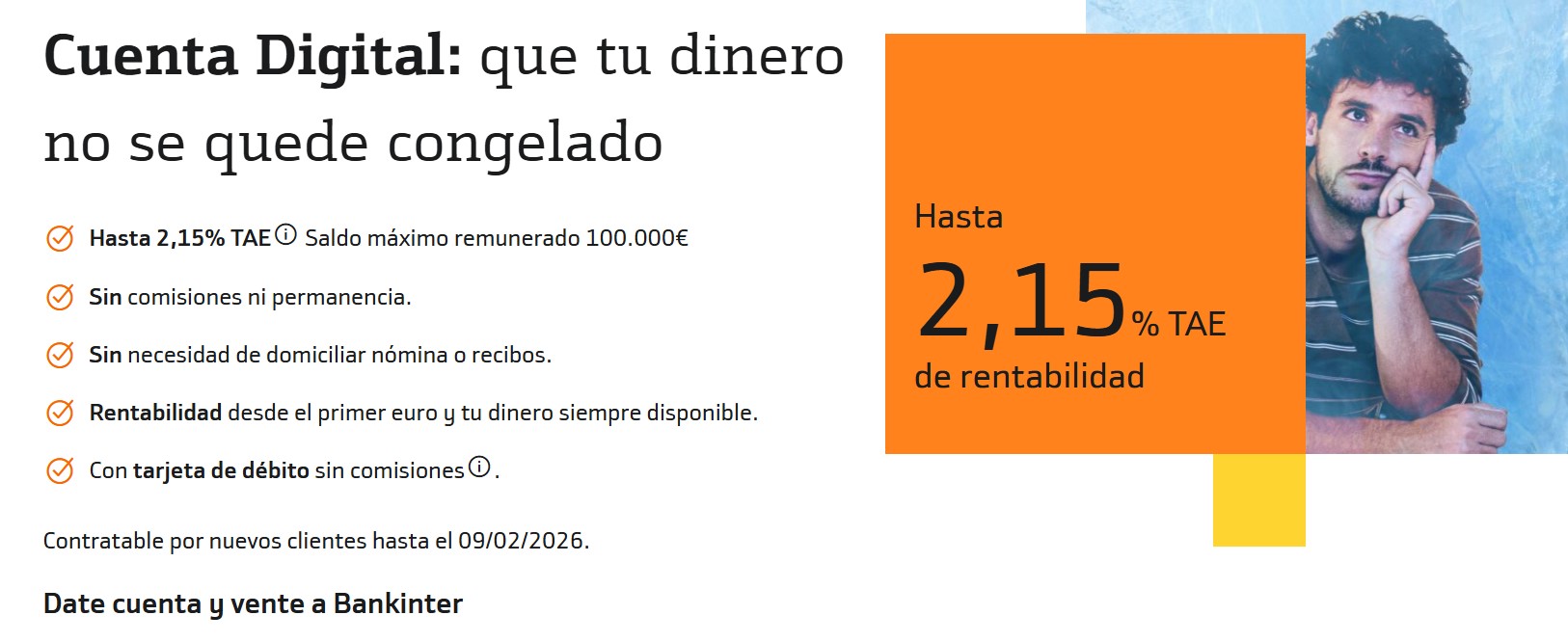The session analysed investor sentiment in times of uncertainty, the fundamentals of the Spanish market and new investment opportunities in the real estate sector.

Industry experts recently met at the Real Estate Trends Seminar, organised by the Esade Alumni Real Estate Club. Now in its 14th edition, this seminar serves as a benchmark in the real estate sector and brings together a large part of the community. The event also piqued the interest of Esade students, for whom it was an opportunity to connect with the alumni community and establish relationships with professionals in the sector.
During her presentation, Carmina Ganyet (VV ‘03), President of the Esade Alumni Real Estate Club, Corporate Managing Director of Colonial and member of the Executive Committee of ULI Barcelona, commented: “These are uncertain times and it is important to understand macroeconomic evolution in order to start to close the price discovery phase. I always say that we mustn’t forget the inflation component because it impacts our valuations and decisions.” Therefore, the aim of the session, Ganyet explained, was to analyse, via the experts’ vision, how economic uncertainty affects decision-making. “Today we want to share where the opportunities for growth are and what trends will define future real estate strategies,” she added.
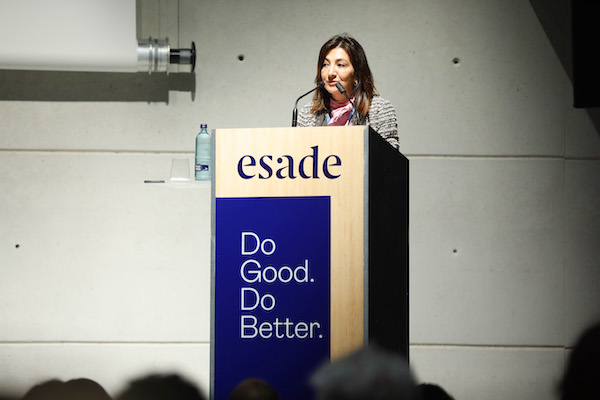
Macroeconomic analysis
Judit Montoriol, Lead Economist at CaixaBank, explained the global and European macroeconomic context and its impact on real estate, focusing particularly on how rising interest rates and the cost of debt have led to a slowdown in investment in the first quarter of 2023. “In Europe, investment has fallen 63% year-on-year in the first three months of the year,” explained Montoriol. “This decline is expected to continue in the second quarter, with a recovery coming by the end of the year. In Spain, however, the decrease in investment was smaller in the first quarter – around 34%.” Montoriol went on to warn the audience of the risk posed by persistent underlying inflation. Financial stability, a prerequisite for achieving price stability, is also a factor. “The financial turmoil in mid-March has prompted central banks to react,” said Montoriol. “We do not think that we are on the verge of a global financial crisis like the one we saw in 2008. So far, the authorities have reacted swiftly and correctly. However, the impact of higher interest rates is being passed on to the real economy with a time lag, so we will have to keep a close eye on developments in the major economies over the next few quarters.”
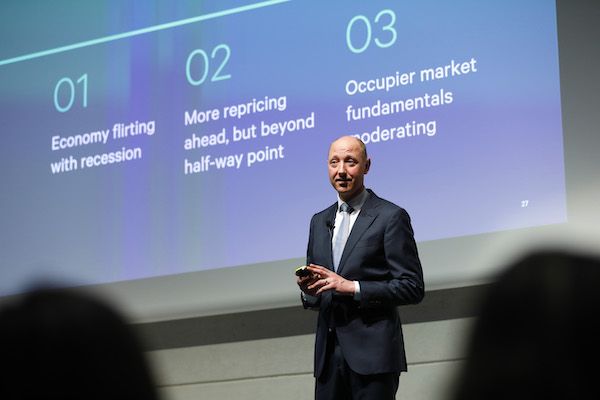
Jos Tromp, Global Head of Data Intelligence & Head of Continental Europe Research and Data Intelligence at CBRE, presented a global market analysis. According to Tromp, inflation is the most important factor. Although it seems to have peaked, he explained, “core inflation is still too high.” Tromp went on to discuss the outlook in the office market, where further polarisation is expected between prime and secondary offices; in the logistics sector, which is seeing a moderation of market fundamentals; and in the residential market, where development is insufficient to meet demand.
In Spain
The performance of the Spanish real estate market in 2023 was analysed by Miriam Goicoechea, Head of Research at CBRE Spain, and Joan Pina, Econometric Director of CBRE Spain, who noted that, despite the current context of uncertainty, a longer-term view suggests positive returns five years ahead, especially for investments from late 2023.
The living sector led investment in Spain in the first quarter, accounting for 42% of the total, well above the average volume seen over the last five years (23%). Investor interest within the alternative segment will be particularly concentrated in student living, life sciences and senior housing, according to the 2023 European Investor Intentions Survey Report.
“One of the drivers in this sector in the coming years will continue to be the fundamental mismatch between the existing supply and the expected demand for rental homes,” explained Goicoechea. The Spanish residential rental stock held by institutional investors currently consists of 100,000 units, which is expected to increase by an additional 28,000 homes by 2025 as a result of build-to-rent operations in recent years. Moreover, 24.2% of homes are currently rented, a figure expected to reach 26% by 2025. Against this backdrop, the number of new rental homes is expected to increase by 700,000, underscoring the need for investment in this sector.
The rise of ESG policies has also led to new opportunities, especially in the office market. Meanwhile, alternative sectors are one of the main investment opportunities in today’s real estate sector.
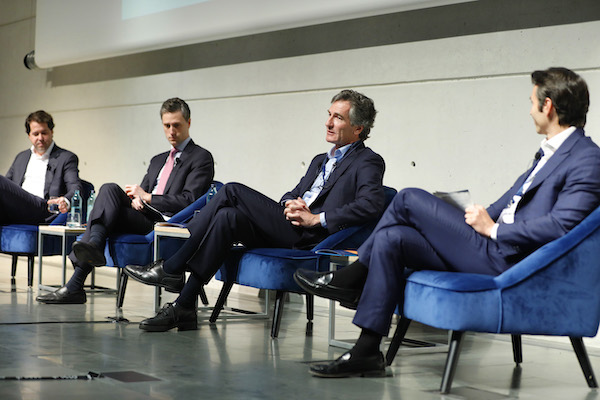
The session ended with a panel discussion entitled “Investor Sentiment”, featuring Alexis Kantt, Managing Director at Blackstone; Manuel Ibáñez, Head of Real Estate Iberia at DWS; and Jaime-Enrique Hugas (Lic&MBA ‘95), co-founder and co-CEO of Conren Tramway. Xavier Güell, Head of CBRE Barcelona, served as moderator. The panellists represented three companies with a total of €23 trillion under management in Spain. They discussed how inflation and interest rates have impacted investment strategies in Spain, which asset classes may be weakened by the current situation, and prospects for the reactivation of the sector.
In his closing remarks, Enrique Martínez Laguna (MBA ‘93), Vice President of the Esade Alumni Real Estate Club, Executive Managing Director of CBRE Spain and member of the Executive Committee of ULI Barcelona, congratulated the speakers on a brilliant session that gave rise to numerous insights into the situation and interpretations of what lies ahead in the coming months. He also pointed out the excellent turnout for the session: “The audience includes not only people from the real estate sector, but also – and this is not uncommon for Esade Alumni Real Estate Club events – we have Esade students in the front row, because they represent the future of the sector.”
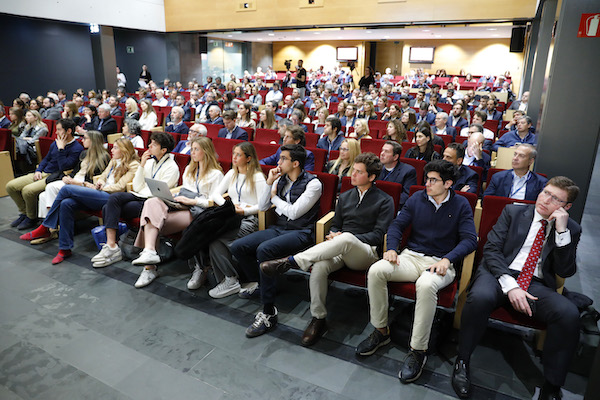
You can see the video of the session in the Content Hub






















